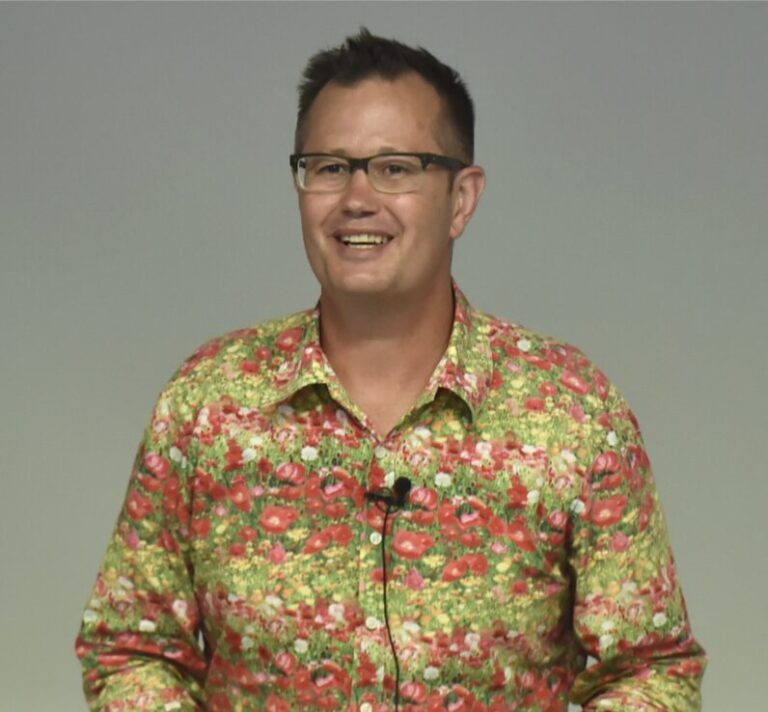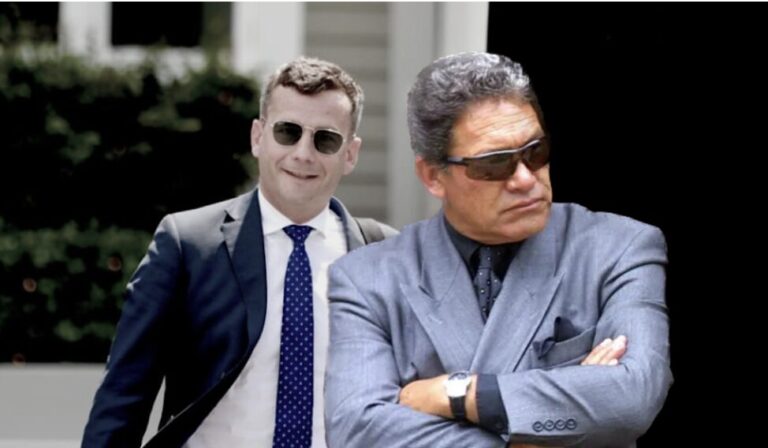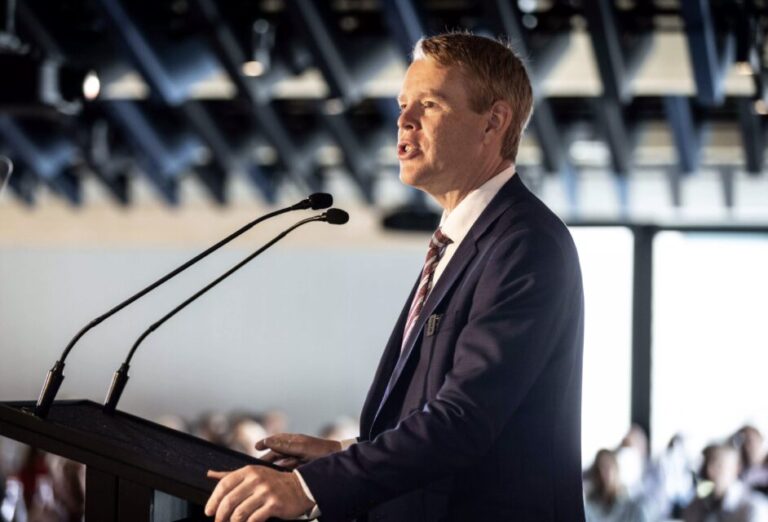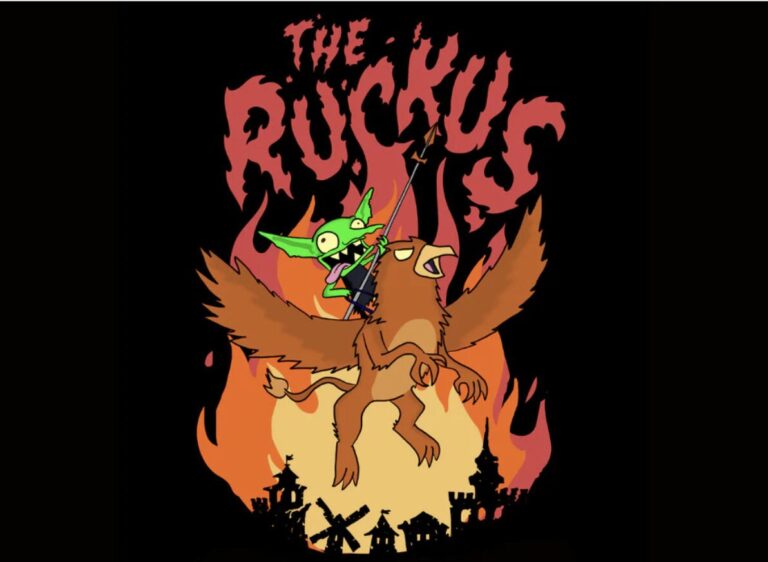The Strange (And Sad) Demise Of Radio New Zealand
IT WAS THERE in the darkness, more reassuring than a loaded gun, my old Philips portable radio. Three o’clock in the morning on Spaxington Landing, 500 miles from home, with no one beside me. Lonely? Not at all. Through that old radio came the reassuring voices of National Radio and the timeless music of the Concert Programme. The public broadcaster as friend and comforter: informative, uplifting, entertaining and – just often enough – challenging.
If asked to choose between a good book and a good radio station, I’d be stumped. A book can transport you magically through time and space – but it can’t play your favourite song. Nor can it bring you the news.
I have grown up, and grown old, within earshot of New Zealand’s public broadcaster. Through times of peace and plenty, through days of tumult and recrimination, it has been a constant and reliable presence. The calm and authoritative voices of Radio New Zealand kept their fellow citizens up to speed: the nearest approximation of the truth they could hope to hear. Trustworthy. Indispensable.
No more.
About the best you can say for the RNZ network today is that it’s better than all the others. When you consider the quality of all the others, however, that’s not saying very much. Moreover, when the clear objective of the public broadcaster’s management is to make its “product” as much like all the others as possible, then the days of RNZ’s journalistic and cultural superiority would appear to be numbered.
What we’re witnessing is a work of destruction in progress. Like the proverbial oil tanker, however, a public broadcaster of RNZ’s quality takes a great deal of energy and a surprising amount of time to turn around. There are traditions that have to be denigrated and dispensed with; experienced professionals who have to be eased out; a multitude of distinctive voices that has to be reduced to a single, overpowering chorus. Turns out you can’t wreck a world-renowned radio network overnight – it takes a while.
Those responsible for the steady deterioration of RNZ will, naturally, object that they have no such intentions. They will point to the network’s ageing audience; to its narrow social base; and to the younger generation’s general unwillingness to tune their dials to anything as stodgy and old-fashioned as “boomer radio”. They will demand to know what’s likely to happen two or three decades hence, when RNZ’s current audience of over-55s begins to die out in large numbers. A public broadcaster incapable of attracting and holding Generations X, Y and Z, is, surely, a public broadcaster without a future.
All of which is true. The argument is not about the need to attract the loyalty of a new generation of listeners, but how that might best be done. Should RNZ build its footpaths where the younger generations already walk? Or, should it construct a road that leads them somewhere new – somewhere they’ve never been before?
RNZ’s management answered that question quite definitively with its proposal to effectively kill off RNZ Concert and replace it with a youth radio network modelled on the black radio stations of New York. Think BfM meets OMC – but without the culturally eccentric ethnic charm. No, Helen Clark may have rescued RNZ Concert, but RNZ’s bosses’ direction of travel remains the same: down, down, down towards the fashionably dumb; not up, up, up towards the intelligently creative. The network’s barkers are already rehearsing their lines: “Come on in and join us, kids! You’ll encounter nothing here that you haven’t heard before. Relax! Enjoy!”
How to explain such wilful cultural vandalism? What drives RNZ’s Generation X bosses to tear down the public broadcaster’s proud tower with such venomous spite?
The answer, I believe, lies in the fact that they are the tragic heirs of Rogernomics. The kids who were educated at school and university to despise the New Zealand that pre-dated the neoliberal revolution of 1984-1993 – most especially its faith in the superiority of public service over private enterprise. What more compelling symbol of that faith could there be than the public radio network? What target more deserving of the rage and resentment of those who never received the public goods Baby Boomers took for granted than New Zealand’s post-war social-democratic flagship – RNZ?
It was through the speaker of my trusty Philips portable radio, way back in 1975, that I heard the first “Morning Report”, the programme which instantly set the news agenda for the rest of the day – for the whole country. Broadcasters like Joe Coté and Geoff Robinson, effortless conveyers of warmth and authority, were a joy to listen to. They, and those who came after them, set the journalistic bar very high. Forty-five years on from that first broadcast, the present hosts of “Morning Report” struggle, and regularly fail, to clear it.
More generally, RNZ’s “product” reflects the network’s reckless abandonment of the middle way. The sensible notion that, as a public broadcaster, RNZ should do its best to reflect the public, has been set aside, and in its place a regime of extreme cultural didacticism has arisen. National Radio is no longer a station where the broadest possible range of New Zealanders’ ideas and opinions is broadcast for their fellow citizens to hear and judge. The views of those who remain unconvinced by the new orthodoxies of identity politics have been rigorously filtered out, and those espousing them “de-platformed” with extreme prejudice.
A friend of mine has coined a phrase for this ideological cleansing of the public airways: he calls it “the Mulliganisation of Radio New Zealand”. The reference is to the afternoon offerings of that quintessential Gen-Xer, Jessie Mulligan: a broadcaster who proves, five days out of every seven, that a little knowledge, and a lot of ideology, are very dangerous things indeed!
Fittingly, Mulligan’s afternoon stint is followed by Wallace Chapman’s “The Panel”. This show (with which it is only fair I acknowledge a long association) was formerly hosted by Mulligan’s highly professional predecessor, Jim Mora. Justly renowned for the “robust” debates between its left-wing and right-wing guests, “The Panel” gave RNZ’s listeners a ringside seat to the political, economic and cultural arguments in which the whole nation was collectively embroiled. No more. Chapman, like Mulligan, specialises in turning down the heat and dimming the lights. Breathlessly inoffensive, punctiliously politically correct, “The Panel” has made the penitential journey from seditious to soporific – and kept on going.
The great tragedy of RNZ is that it has squandered the opportunity to interrogate intelligently the hopes and aspirations, the triumphs and challenges, of the generation that followed my own. Not every New Zealander born between 1966 and 1986 subscribes to the extreme “wokeism” that is currently masquerading as the default ideology of RNZ’s listeners. Most of them would, however, be glad to hear its contentious propositions debated. Such as the wisdom, or not, of passing laws against “hate speech”. Or, of introducing a radically Maori nationalist version of New Zealand history into the nation’s classrooms.
Some listeners would even welcome, in addition to RNZ’s programmes about rural New Zealand, and its regular updates on the antics of the markets, a strong and constant commitment to covering the issues arising out of everyday working-class life in this country. An RNZ that acknowledged New Zealand (not “Aotearoa”) as a house of many rooms, many windows, and many mirrors. A multicultural society with a great many more than one ideological story to tell.
An RNZ which refuses to acknowledge the full diversity of belief and aspiration in New Zealand runs a terrible risk. When the mood of the nation inevitably shifts, the worst possible position in which the public broadcaster could find itself is so far out on an ideological limb that its enemies feel completely safe in sawing off the branch altogether. An RNZ so bereft of friends and allies that no effective defence is any longer possible.
There is a very good reason why the public broadcaster should do everything within its power to be the citizens’ friend and comforter. It’s so those same citizens will always have a reason to be the friends and comforters of public broadcasting – when its enemies come a-calling.







Posted this over on the other version of this post:
Spot on Chris. The place is actually been run by cast-offs from the 1980s. This is 80s middle of the road talkback, without the ads. It rates for sure, and they only care about the numbers now, because numbers prove it is relevant, and worthy of funding. As you say, they are fearful of any debate, of upsetting people. Sound like us? Yeah, nah. I used to listen to RNZ Nat probably 8 hours a day. I get my news from one hour of Morning Report, because they basically repeat the first hour three times. Just like RNZ National, the website has lost its way too. They haven’t won any awards for that, for years. Too much ‘visual journalism’, and not enough substance. They are stuck in the mindset that Facebook promoted that video is more engaging. Phil Pennington deserves credit for the stories, he breaks, and others, I’m sure, plus Māni Dunlop, and Julian Wilcox, for breaking through the racist culture that developed through the 90s. I’ve given up on Checkpoint, which was a guilty pleasure when Mary hosted. The current host is constantly saying if you want to see the pictures on that story go to our Facebook page. Who cares, I am in the car at that time. What a waste. Sunday is turning into The Panel, it won’t be long before the excellent Media Watch is relegated to the bin like Insight was, because it’s ‘not hosted by Jim’. The podcast productions have started to sound like a heavy-handed editor has taken to them. There is no innovation any more, it’s all so bland, and the music in the podcasts isn’t helping. Brain Crump, Katherine Ryan, and Kim Hill, and some of the older reporters and producers continue to be national treasures. So sad.
A bit harsh on some of RNZ’s hosts, I thought, Chris. Definitely unfair on Jesse Mulligan.
What is “woke”?
Yknow Bomber got cancelled from RNZ correct? Although there are many woke definitions I’ll use cancel culture to describe what I mean when I say woke I’m referring to small segments of the left who go around cancelling people. It is a mistake to adopt the principle of the corporate cancel culture to cancel voices they perceive as surplus to requirements. Big mistake.
“The hopes and aspirations, triumphs and challenges, of the generation that followed my own.”
Glad to hear its contentious propositions debated?
Does that mean there is a place for Sean Plunket, John Banks and Peter Williams?
Gen X are in their 50s now – when do they get to run RNZ? Now. Predictable boomer moaning dressed up as comment. Calling anything you don’t like/understand ‘woke’ is predictable, boring and lazy. RNZ is finally connecting with its present audience – there has never been more people listening to it – do some research, rather than regurgitate the same old racist, cloistered and nostalgic bumpf the rest of us have moved on from. The demise of these silly old tropes and their champions is long overdue. Also, it seems the author requires his hosts to have fronted those hotbeds of political discourse – TV gardening shows – before being allowed to be taken seriously on RNZ. Give us a break Old Zealand.
Billy Idol: “Predictable boomer moaning dressed up as comment. Calling anything you don’t like/understand ‘woke’ is predictable, boring and lazy.”
What? Bradbury fulminates against wokery and all that identity politics nonsense. Surely you’re not calling HIM a Boomer, are you?
And you should hear my offspring – who by definition couldn’t be of the Boomer generation – on the topic.
Oh for Christ’s sake – Do none of you see the poisonous corruption?
Most of you innocently accept the accepted idea that RNZ is advertising-free. Utter Bollocks.
After hourly news and also the ½-hourly headlines, we get blatant advertising spoon-fed to us with absolute regularity… RNZ advertising its own programmes. Back when intellectuals were real intellectuals, the National Programme would never have thought of lowering itself to advertising at all, let alone advertising its own programmes. But now bloody Marketers are promoted to the top to run our state media.
National Radio apes its commercial inferiors every day, and every day more people accept advertising as normal. Not only does RNZ annoy me with those bloody silly advertisements for its own programmes. (I remember thinking Kim Hill was choking on her own vomit the first time I heard her descend to doing it, but now she seems to do it quite happily.) Also, it seems that NZ on Air must also be advertised, because in this stupid, commercialised era, every little state-run thing must pretend to be a commercial enterprise, have a corporate culture, and be advertised to the stupid public who are supposed to believe all the bullshit being spoon-fed.
We should not be getting this bullshit from our state broadcasters.
In Vino: “Most of you innocently accept the accepted idea that RNZ is advertising-free.”
No we do not. Do you think that none of us had noticed what’s happening on RNZ?
It’s even polluting Concert. It pisses me off: I’ve written to the station about it, but it does no bloody good.
I also seriously object to RNZ’s attempt to change NZ’s name, for which endeavour it has absolutely no mandate.
If there is to be a name change, let’s be having a referendum on it. I take exception to RNZ’s having snuck it into all presenters’ usage.
Oh please! I don’t hear the endless segments advertising the Mad Butcher or the windscreen fixers or the home improvement conglomerates or any of the nonsense competitions to call in and win a free ticket to the latest Greenlane meat-eaters fest. Get a grip…a few promos telling you what is coming up on air is not only painless, it’s informative. And your nonsense about NZ on Air borders on conspiracy theory.
“a few promos telling you what is coming up on air…” is just how they condition you to accepting advertising, sponsorship, and popularity ratings as the only way of operating. I think there definitely is a conspiracy to stifle anything other than the marketing-funded method. The greedy middlemen want it all – no state-funded alternatives.
RNZ is easily fixed. Like all institutions it merely needs a clean out. Dump the hard-to-listen-to arrogant egos that have been on air for decades and recruit some new blood, i.e. young people. Our tertiary education system has been churning out fresh-faced journalists and broadcaster types for years but where do they all go? Some of them are genuinely talented and would provide a fresh face to the staid old school egos we have now.
They need to ditch their formulaic entertainment formats and stop just paying lip-service to listener involvement…get some real and meaningful feedback channels operating.
And could they please ditch the tedious market updates and rural reports? This is where their steadfast ideology sits. Blind acceptance of market capitalism and Kiwi rural stereotypes is far worse than their so-called ‘wokeness’ in my book. Where is the critical stance? The occasional pushy and tense moments with Judith Collins from the likes of Suzy Ferguson or Kim Hill just don’t cut it.
Having said this though, it is unfair to say RNZ doesn’t have its moments of brilliance. Where else do you get critical coverage of climate change? (even if it is a couple of decades too late). Where else can you hear an intelligent review of the latest indie album of NZ music? Where else can you hear an appraisal of the latest Booker prize winner? Where else can you hear an interview with the latest academic expert on animal sentience, or human evolution, or the Fukushima meltdown?
Keep going RNZ, I will forever support you, just sharpen up your act (reduce those ‘turn-off’ moments), and brush out the dead wood (easier said than done of course).
Paul Judge: “Dump the hard-to-listen-to arrogant egos that have been on air for decades and recruit some new blood, i.e. young people.”
Young isn’t necessarily better. Especially in today’s world. Many – perhaps most – of the young coming out of universities today are irredeemably woke. We need more of that on either NatRad or Concert like we need toothache.
“The occasional pushy and tense moments with Judith Collins from the likes of Suzy Ferguson or Kim Hill…”
There you have two of the reasons why I no longer listen to NatRad. Life is too short and all that….
Ferguson has gone so far down the woke rabbit hole that I doubt she’ll ever find her way out.
Kim Hill used to be a first-class interviewer. Used to be…..
I’m a boomer. I’ve listened to NatRad for as long as I can remember: it was what our old radio was tuned to when I was a child.
What we need in NZ is decent foreign affairs journalists. There’s no tradition of this sort of journalism here, and sadly, that also applies to RNZ. The closest it got was Michael Field, and he’s retired (or been retired), I think.
The lack of foreign affairs journalism here has deprived us the citizens of the benefits of any critical coverage of international affairs over my lifetime.
What we get instead – and most regrettably on RNZ – is news links from UK and US propaganda mouthpieces, presented uncritically. It wasn’t until the rise of the internet that it was possible for us to have access to critical and dissenting views of what’s been happening here and overseas.
And now could Chris please turn his attention to Stuff and the Dominion Post …
“Or, of introducing a radically Maori nationalist version of New Zealand history into the nation’s classrooms.”
Which of these supposed characteristics of the new syllabus most alarms you Chris?
“Radical”, “Maori” or “nationalist”?
Elsewhere you have suggested that the syllabus will be hostile to the role of Pakeha in New Zealand history. That would be foolish and regrettable but not too surprising, because in its desperate efforts to avoid anything approaching a truly radical and nationalist perspective embracing Maori and Pakeha, the colonial regime invariably seeks to divide the one from the other.
The regime’s right wing do this by way of a crudely anti-Maori rhetoric, and the left by asserting that it is Pakeha, rather than the British crown, that was responsible for the betrayal, dispossession and subjugation of Maori.
The colonialist right and left seek to portray colonialism as a purely cultural phenomenon rather than as a political reality which can only be overcome through radical constitutional reform.
I am afraid that you, Chris, for all your political insight, are one of the worst offenders against the truth in respect of the colonialist system. You persist in fostering racial antagonism, while remaining silent, or even tacitly approving, the continuing presence of a colonial regime in our land.
Yes, we may be disappointed and even angered by the syllabus which the regime decides to put in place in its schools, but the truth will out. Our young people are not stupid. They will know the questions to ask of their teachers. They will also come to class armed with a good deal of factual knowledge.
Either way, you are on a hiding to nothing. Whether you choose not to teach our history, or teach it from a false and biassed perspective, our rangatahi know who they are and where they are going.
The male ‘Panelists’ have been neutered, whilst ‘Aotearoa’ is the semi-corporate re-branding of our history and current identity, in which we do not get a say in it.
It pays to take the long view and be philosophical and pragmatic, Chris.
The National Radio you yearn for was a short-term aberration in the grand scheme of things, being an indirect product of cheap and abundant oil, and electricity.
Abundant oil is no more: it was squandered in a decades-long orgy of overconsumption. It is currently relatively cheap because the world economy is tottering on the brink of collapse and demand is well down from peak. That said, oil prices are too low to support the industry long-term, and something is going to give very soon; either a further collapse of the oil industry or rapidly rising prices that choke off demand and cause prices to fall again (as happened in 2008).
As for electricity, well NZ may or may not be able to keep its grid running beyond 2030. Recent events in Texas have clearly demonstrated just how fragile such grids are in the face of extreme weather events. And NZ is far from immune from severe weather events. ‘One-in-a-hundred-year events occur every second year now. And it will get worse. Much worse. Even a persistent high pressure system that provides balmy weather -such as we are experiencing now- has its downside in the form of drought that sees water storage plummet and hydro-generation plummet.
We had the good times, and can remember them. I certainly would not want to be a youngster, facing the kind of future the rotten system has handed down to them.
By the way TEOTWAWKI, The End Of The World As We Knew, occurred between 35 years ago and 15 years ago. We are now left with the remnant of the world we knew, propped up in the short term by the money-printing of central banks at close-to-zero interest rates.
It’s over. I was once a dedicated listener and passionate supporter but RNZ has gone so far down the woke loony rabbit hole that it’s just dry boring dribble with the occasional exception of a decent Morning Report interview.
The rise of long form podcasts and the like featuring fascinating subjects and in depth interviews freely available at a time when I want to listen has torn me away from RNZ and I see no reason to return.
That and they’re very dull now.
“What we’re witnessing is a work of destruction in progress. ”
Yep, well I’ve only given your post a quick read and you’re not going to hear the last of me. But I hope you know why its demise is on the horizon.
The guy and his disciples are complete muppets, better suited to somewhere in advertising or commerce.
And what is even sadder is that there is a ‘responsible’? Minister in a LABOUR gummint ffs! who either doesn’t give a fuck, or is out of his depth (sure as shit he is in the Justice portfolio). A lazy uni-tasker, but also a teacher’s pet who has come from a background in commercial TV. I’d put money on it that the fact that he’d been ‘in the media’ is the only reason he got his portfolio. But as useless as tits on a bull.
But there’s life in the old girl (RNZ) yet, as we’ve seen when they tried to disassemble ConcertFM. Unfortunately The Wireless – which should have been ‘progressed’, was an early casualty of RNZ management’s agenda.
The Labour leadership I reckon, should start to think long and hard – because it’s not just going to be that boomers are dying out with new kids in town, but there’ll still be a few middle class/upper middle class ardent and prominent RNZ devotees around who – along with the new kids in town are not going to be very happy.
Thompson I think, misjudges his audience – it’s a lot broader than he thinks – but then he’s from the land of demographics and targeting. That’s the land where various assumptions are made – such as all young people don’t like classical music, and only a few of them are concerned with politics.
All of which of course is antithetical to the concept of public service broadcasting.
Plus of course the guy costs a fortune for being such a useless prick.
0nce upon a time I used to be a devotee of RNZ. Nowadays it is trivial noise. I am usually walking between 6am and 6.30am. Catch news headlines and some weather traffic info.
RNZ has the same headache of the print media, the internet.
The worry is that zuckerberg will rule.
I wonder if the appeal only to boomers is because of their age/group or because of their maturity. When we were young we were much more interested in listening to Collin Broardly out off the Barrier on Radio Hauraki.
As we mature and especially settle down with a steady partner , partying becomes less urgent and considering the world affairs more concerning. I think every generation will go through the same evolution.
D J S
Does anyone even own a portable radio anymore
yes. good radio is wonderful
Sam: “Does anyone even own a portable radio anymore”
Of course. But mine is tuned to Concert. I gave up on NatRad some time ago: it’s a lost cause.
I thought my car had a radio in it but I checked and it wifi enabled. Thinking about it now I probably haven’t bought a radio in at least the last 25 years.
“The answer, I believe, lies in the fact that they are the tragic heirs of Rogernomics”.
You’re not wrong Chris – captured by the sad tenants of New Public Management.
Forgot!
There is far too much use by journalists of adjectives. It’s not a ‘vicious’ cyclone! It is impersonal. It is not a clever interpretation just an interpretation. Adjectves are subjective!
Forgot!
There is far too much use by journalists of adjectives. It’s not a ‘vicious’ cyclone! It is impersonal. It is not a clever interpretation just an interpretation. Adjectves are subjective!
Yes a general lack of professional delivery. It’s all hyped up bonne ami repartee. And mistakes. One early morning female curator got the time wrong by an hour! Lots of (corrected) mistakes in the shipping weather report whish is delivered too fast. The midnight to 5 is now full of 40 min music music evaluations. One interview badly timed and cut off by the pips as was the end of one serial on the kids story program!
Thanks Chris.
I wholeheartedly agree with you.
As with you Chris, I was addicted to Nat radio from mid seventies.
I’d had enough by mid noughties.
The rot really set in with Sharon Crosbie’s slash and burn efforts in the early 1990s, after her return from her neoliberal indoctrination stint at Harvard. Of course she was only a pawn in the general scheme but the way she turned and fed on her own was disgraceful.
Don’t share your nostalgia for Mora’s afternoon effort.
Truth told, I’m still gutted by Sharon C pulling Dick Weir’s “Ears” programme. That was a middle finger from her toward the fostering of future audiences.
That’s Shaaaaaaaaaaron Crosbie to you darling!. (/sarc)
That said though, she’s probably ten times better than the current muppet at the helm. Apparently all good too with the teacher’s pet.
There’s a lot of instances of the sabotaging of Radio New Zealand (oops, soz! The ‘re-branded’ RNZ).
One thing’s for sure though: Thompson and his sidekick Hand Jive Willie were the last, and probably most pathetic attempt at destroying it (the Concert FM debacle). Obviously neither of them understand the concept of what public service broadcasting is or should be, both so ignorant, and into commercially-oriented ‘demographic targeting’ they didn’t anticipate the backlash. But rest assured, Thompson will carry on with his master-of-the Universe agenda.
But then the same sort of shit seems to be going on at Auntie BBC. I don’t know how many times their marketing consultants have attempted to survey me with multiple choice questions – none of which fit what I actually think.
And last time I looked, ‘the man’ was cruising on around $400k p.a.
And I’m sick of me me look a me so called journalists. eg Lisa Owen. Shrill. Superficial. Tabloid. FFS.
ego the size of a bus, that one.
I stopped listening to National radio about four years ago I would turn it on in the morning and off late at night now it’s just rubbish.
I don’t think anyone ever tuned in to RNZ for Mora or Chapman – they tended to get windfall listeners that hadn’t switched off after Kim Hill, or back in the day, Sharon Crosbie.
Beyond boring
What is?